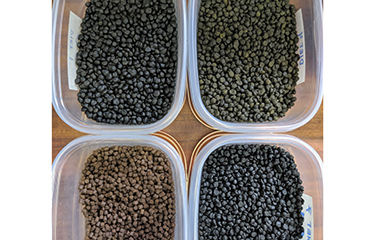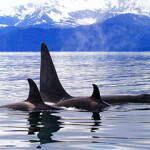Farm-raised carnivorous fish successfully weaned on feed containing no fishmeal or fish oil

A research team has successfully replaced fish oil with Veramaris’ natural marine algal oil in feed for farm-raised kampachi, also known as Hawaiian yellowtail.
Blind taste tests revealed that, when weaned on feed containing the cost-effective, fish-free algal oil, kampachi had “a more desirable taste compared to fish fed on a standard diet,” Veramaris noted in a press release.
The alternative feed was trialed over the course of three months courtesy of Hawaii-based mariculture company Ocean Era. Funded by the National Oceanic and Atmospheric Administration (NOAA), the trial involved 480 juvenile kampachi, which were fed on four diets, two of which contained no fishmeal. One of the fishmeal-free diets consisted of Veramaris natural marine algal oil instead of fish oil. Veramaris confirmed that a fishmeal and fish oil diet was used as a control, joining one other commercial control diet.
Fish fed the zero-fishmeal and zero-fish oil diet performed as well as the fish fed with the fishmeal and fish oil diet, according to Veramaris. Growth, feed conversion ratio (FCR), fillet yield, and survival were all evaluated to determine the performance of the various trialed feeds, the company added.
“This is the first time – to our knowledge – that fishmeal and fish oil have been totally eliminated from the diet of a marine carnivorous fish, with no deleterious consequences,” Ocean Era CEO Neil Anthony Sims said. “Kampachi are a fast-growing, sashimi-grade fish, so this a significant breakthrough for the sustainability and scalability of marine fish farming.”
Veramaris CEO Karim Kurmaly agreed that the study presents milestone findings for the carnivorous fish-farming sector.
“This study is important for carnivorous fish reared in the aquaculture industry. Not only can fish oil be replaced by algal oil with the highest levels of EPA and DHA omega-3, but algal oil may also contribute to a better tasting fish,” Kurmaly said.
“The results clearly show that algal oil can replace fish oil 100 percent without any reduction in growth of this marine fish,” Rick Barrows, a fish nutrition expert with Aquatic Feed Technologies and co-principal investigator of the study, added.
Innovative technology is used to produce Veramaris’ natural marine algal oil, which offers concentrations of omega-3 fatty acids EPA and DHA exceeding 50 percent – twice as much as fish oil, the company explained. The alternative ingredient is intended to sustainably reduce the world’s dependence on forage fisheries, the firm said.
“The ability to replace fishmeal and fish oil currently used in carnivorous marine fish diets will have important implications for ocean sustainability and meeting the growing demand for seafood around the world,” Ocean Era said in a separate press release.
Aquaculture uses more than 70 percent of the world’s fish oil and fishmeal, which typically originates from forage fish species such as sardines, anchovies, and menhaden, Ocean Era noted. Moreover, approximately 20 percent of the global wild catch, or 18 million tons of fish annually, is converted into fishmeal and fish oil for use in animal feed. According to a recent study cited by the F3 Challenge, if “business as usual” continues, forage fisheries will reach their ecological limits by 2037.
“Development of diets that use these upcycled ingredients and microalgal oils is critical to the long-term scalability of marine fish culture, and therefore to our ability to sustainably feed a planet of nine billion people with heart-healthy seafood,” Sims said.
Feed milling support for the trial was provided by the United States Department of Agriculture’s (USDA) Agricultural Research Service, Ocean Era said, and the feed formulations used during the process are available as open source formulae through the F3 Feed Innovation Network (F3 FIN). The details of the trials have been published in the Global Aquaculture Alliance’s Advocate.
For more information on feed alternatives making waves in 2020, download SeafoodSource’s Aquaculture Innovation Report for free.
Photo courtesy of Ocean Era






Share